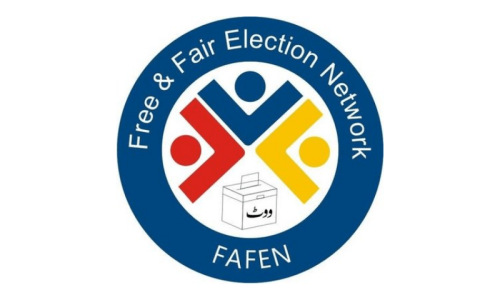KARACHI, April 26: The ongoing tussle between the provincial and the city governments over the administrative control of the Karachi Water and Sewerage Board and the Karachi Building Control Authority was debated in a seminar on Saturday, where most of the participants supported the city government’s claim over the two civic bodies.
The seminar on Karachi Strategic Development Plan-2020, also known as the master plan, was organised by a non-government organisation, Shehri, at a local hotel.
“We as Shehri believe that these two areas (water and sanitation and building control) should be with the city government,” said Ronald D’Souza of Shehri. He, however, maintained that the issue of the administrative control was not new as vested interests were on the move for their personal gains.
On Thursday, the Sindh government through two notifications took over the administrative control of the KWSB and the KBCA and appointed Local Government Minister Agha Siraj Durrani as the authority and chairman of the two bodies, respectively.
However, the city government, in retaliation, issued two notifications on Friday in pursuance of the earlier orders of the Sindh government and made the KWSB and the KBCA as water and sanitation and building control groups of offices.
Commenting on the situation, noted economist Dr Kaiser Bengali said that the changes made by the Sindh government were under a 1996 Act of the KWSB but the Sindh Local Government Ordinance (SLGO) 2001 specified that water supply and sewerage were the functions of the city government.
Most of the participants of the moot also raised the issue of land control in Karachi questioning as to how the city government could possibly implement the recommendations made in the KSDP-2020 in the prevailing situation.
Pointing out a flaw in the master plan, town planner and architect Masood Jaffery said that it lacked a clear-cut mechanism required for the implementation of its recommendations particularly in those areas that did not come in the jurisdiction of the city government.
Senior lawyer Naeemur Rehman was the first among all the participants who called for the establishment of a central authority for a proper implementation of the master plan all across the city and for doing away with the issue of jurisdiction.
Advocating the need for a central body, Dr Bengali suggested the NGO, Shehri, take a lead and launch a campaign “Ek Shehar, Ek Nizam” (one city, one system) and the participants also endorsed his views.
Mr Jaffery also backed the idea of an overseeing committee for a proper implementation of the master plan.
Referring to a CDGK desalination plant at Hawkesbay, Mr D’Souza said that the Defence Housing Authority (DHA) had established a desalination plant at the beach but the city government, due to the pressure from civil society and in compliance with its master plan, was setting up the plant some 800 metres away from the beach, which gave ample proof of the power of the masses if they showed interest in the happenings around them.
Explaining the absence of the CDGK representatives in the seminar, Amber Alibhai of Shehri said that the city government authorities were upset over the adverse media coverage of a previous seminar on the same subject.
She urged the participants of the moot to raise their voice to make the sectoral reports of the master plan public so as to ascertain whether the city government had incorporated the suggestions made by the experts in the KSDP 2020 or not.












































Dear visitor, the comments section is undergoing an overhaul and will return soon.